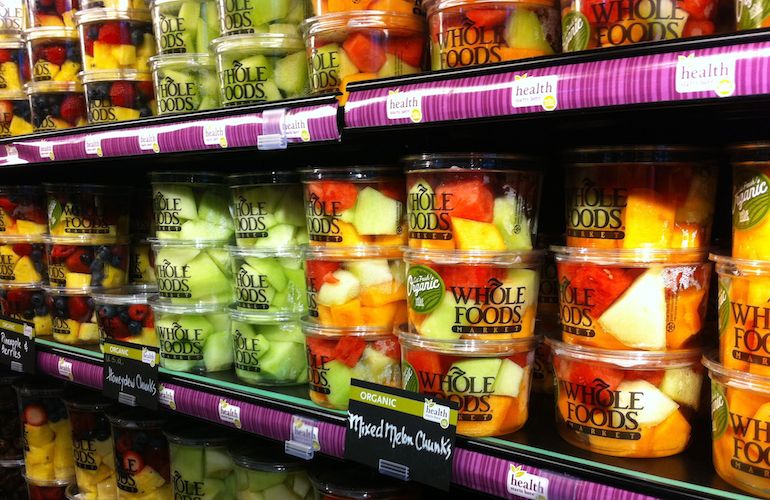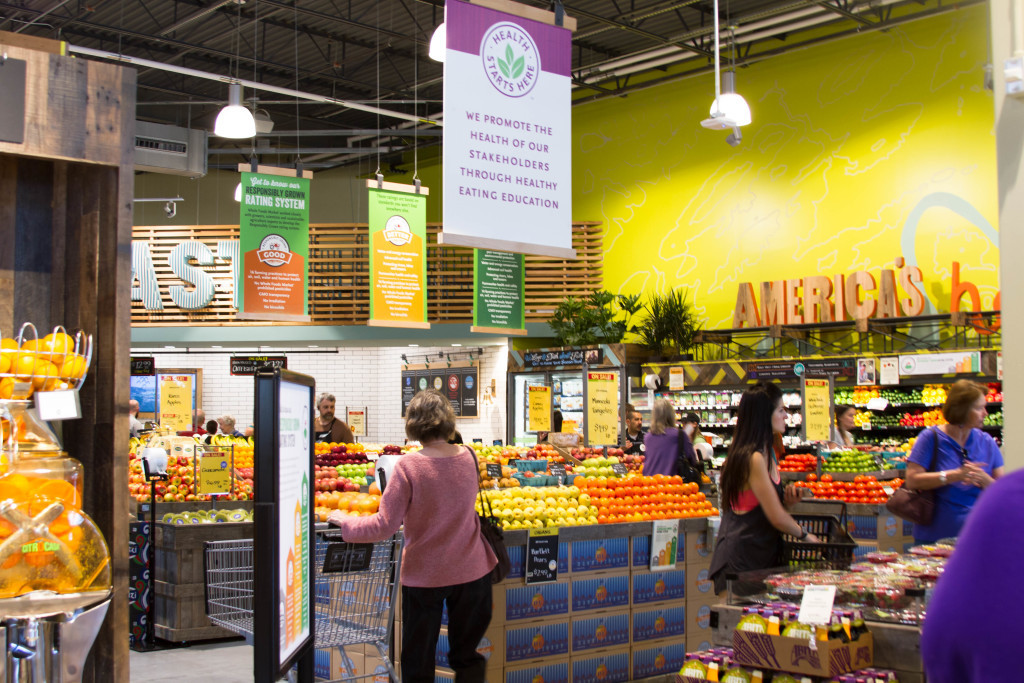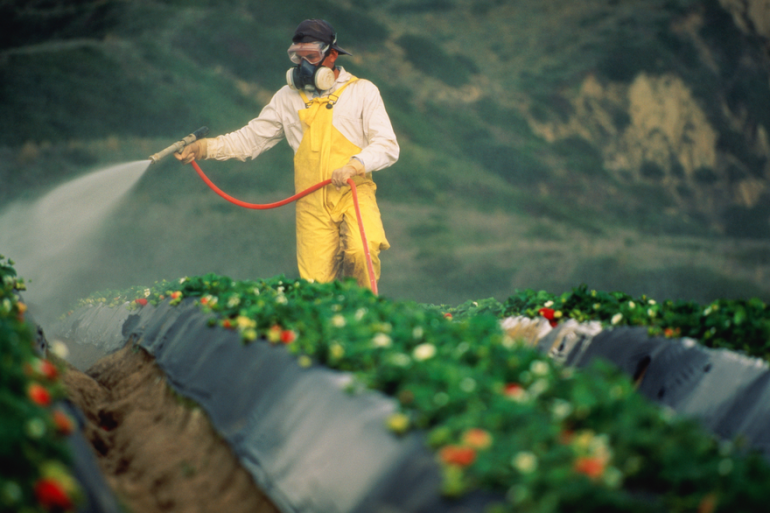Could the beast of organic food gone mainstream that is Whole Foods really have secrets that go against their ultra-sustainable image? The answer is yes. Whole Food’s vague sense of ethics that appeals to customers’ conscience has been the consistent selling point of this hipster-haven.
An article from Slate Magazine breaks down the tactics of the store of wholesome and healthy for the wholesome and wealthy.
Reasons to buy organic? Don’t be fooled.

Photo courtesy of eat-spin-run-repeat.com
In the produce section at Whole Foods in New York City’s Time Warner Center hangs a banner of “Reasons to Buy Organic.” Beneath that the first heading says to “Save Energy.” This refers to buying organic produce that use natural fertilizers and avoid energy waste in the manufacturing of synthetics fertilizers.
This a good technical point, but it ignores a more practical truth. Say you live in NYC and want to buy a pound of tomatoes in season. You can choose between conventionally grown New Jersey tomatoes or organic ones grown in Chile. Unlike the organic choice, the New Jersey tomatoes are cheaper and fresher having traveled a fraction of the distance. There’s also (literally) tons of more carbon emissions expended if they come from Chile. And with the sale of agro exports, choosing conventional gives New Jersey social and economic gains.
Small farmer friendly? Not so much.

Photo by Bailey Culpepper
Another banner glistens with the title “Help the Small Farmer” as beneath it states, “buying organic supports the small family farmers that make up a large percentage of organic food producers.” Too bad that hasn’t been the case for years since the USDA first drew up the guidelines for organic food production in 1990. Today, most organic food produced in the U.S. comes out of California where five or six large farms dominate the whole industry. If you want to support the small farmer, go to a farmers’ market.
A multinational chain that specializes in local food? Seems unlikely.

Photo by Bailey Culpepper
Yet another banner falsely advertises a message that appeals to the consumers’ eco-conscience. That is the Whole Foods’ banner declaring their “Commitment to the Local Farmer.” This might be true if they sold more than just a few shelves of local food. But how can a multinational chain truly be local without being self-defeating?
If you peruse the Whole Foods website further you might find an article they publicized by one of their bloggers called “Top 10 Reasons to Go Organic!” A publication on science news, Real Clear Science, breaks down the reasons and teaches how they got it all wrong.
“Organic products meet stringent standards. Organic certification is the public’s assurance that products have been grown and handled according to strict procedures without persistent toxic chemical inputs.”
Actually, most of organic certification is just paperwork. The USDA hires third-party contractors to do field inspections rather than doing it themselves. And organic farms do use “natural” pesticides, which are much less regulated than their synthetic counterparts, and some of which can be considered toxic.
“Organic production reduces health risks. Many EPA-approved pesticides were registered long before extensive research linked these chemicals to cancer and other diseases. Organic agriculture is one way to prevent any more of these chemicals from getting into the air, earth and water that sustain us.”
As a matter of fact, 97% of the pesticides used in California where most organic food comes from are less toxic than caffeine or aspirin. Plus herbicides can actually be a good thing. They allow for no-till farming which is better for the environment.

Photo courtesy of healingthebody.com
“Organic abundance — foods and non-foods alike. Now every food category has an organic alternative.”
While today there are more organic options, a study in Nature says that organic farms yield substantially less food than conventional ones. It’s impossible to feed the world using organic techniques alone.

